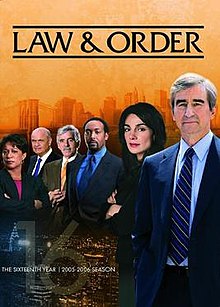New Waiver Rule to Help Immigrants Who Are Close Relatives of U.S. Citizens
 Those who are being forced to leave the United States because of being here illegally will now have the chance to return to the country sooner if they are immediate relatives of U.S. citizens and they meet certain requirements. This is because of a new waiver processing rule that goes into effect on March 4, 2013, which is meant to reduce the amount of time U.S. citizens have to spend away from immediate family members who are undergoing these types of situations.
Those who are being forced to leave the United States because of being here illegally will now have the chance to return to the country sooner if they are immediate relatives of U.S. citizens and they meet certain requirements. This is because of a new waiver processing rule that goes into effect on March 4, 2013, which is meant to reduce the amount of time U.S. citizens have to spend away from immediate family members who are undergoing these types of situations.
The new rule, announced on Jan. 2 by the U.S. Citizenship and Immigration Services, is meant to be used by individuals who are in the process of obtaining visas for permanent residency in the United States-particularly after they have been found to have been residing in the country unlawfully. Under the new rule, qualified individuals can apply for a provisional unlawful presence waiver before departing the U.S.
Due to the current Immigration and Nationality Act (NIA), individuals who entered the country without the proper visas are generally not allowed to obtain their immigration visas in the U.S. Instead, they must first leave the country and obtain their visas at U.S. consulates in their own countries. After these departures, immigrants often face challenges in returning to the U.S.-if they were in the country illegally for more than six months, they could be barred from returning to the country for a period of three to ten years. Filing an unlawful presence waiver, however, can help these immigrants side-step the lengthy bar and obtain a visa so they can return.
This is where the new waiver rule can make a major difference. Under the existing policy, foreign nationals being forced to leave the U.S. are not allowed to file their waiver applications until after they have departed from the country, have had their immigrant visa interviews with the U.S. consulate located abroad and have been found inadmissible by that consulate. Under the new law, individuals in this situation who have immediate family members who are U.S. citizens can file for a provisional unlawful presence waiver. While departure from the country will still be necessary in order for a permanent resident visa to be acquired, applying for the waiver before departure can help speed the process, allowing families to spend less time apart. Individuals who can qualify for this type of waiver are the spouses, parents and children (under age 21) of U.S. citizens.
It is important to note that the new waiver process is only available to immigrants whose inadmissibility is based on unlawful presence in the U.S. While the new process will become effective in March, the current process will still be available to immigrants who do not qualify as immediate family members of U.S. citizens. Just as with the current waiver, those applying for the new waiver will need to show that the denial of such a waiver would cause extreme hardship to the U.S. citizen.

